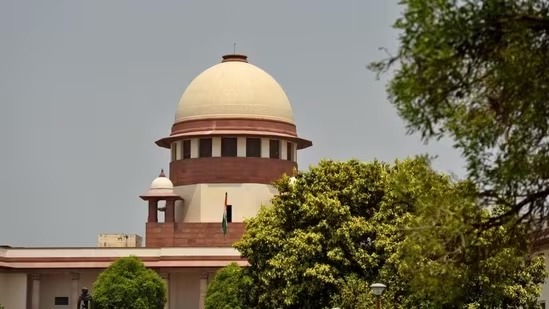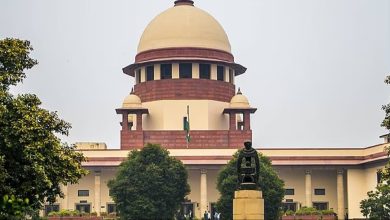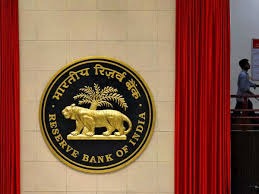Selective orders on appointment of judges sends wrong signal: SC

As of November 1, 332 posts of high court judges were lying vacant in the 25 high courts across the country against the total strength of 1,114
Selective decisions on appointment and transfer of judges by the Centre “sends a wrong signal,” the Supreme Court said on Monday, adding the court will continue monitoring the status of collegium’s recommendations not because it wants to take an antagonistic stand against the government but because it is “necessary for the system”.
The court’s observations continue the long-running standoff between the judiciary and the executive on a timeline for appointment to constitutional courts.
Imploring the Centre not to segregate names from a batch of recommendations made by the collegium, a bench, headed by justice Sanjay Kishan Kaul, flagged the court’s concerns over “pick and choose” by the government in appointing and transferring high court judges.9
“As per our information, you have issued transfer orders for five judges of high courts, but not for six others. Four of such names are from Gujarat. Why do you do this? It doesn’t send a good signal if you pick and choose. Don’t do selective transfers,” the bench, also comprising justices Sudhanshu Dhulia, told attorney general R Venkataramani, who appeared for the government.
Adding that selective transfers creates its own dynamics, the bench stressed on the fact that of the six transfers yet to be notified by the government, four were from the Gujarat high court. “What signal do you send when four judges from Gujarat are not transferred at all?” it added.
Responding, the A-G said that progress was being made in processing the collegium’s recommendations as he asked for some more time for the government. But the bench retorted: “We gave you time earlier too, but six transfers are still pending. This is not acceptable. What is the signal you have sent? Four from Gujarat have not been transferred at all.”
It cautioned the government and warned that it would otherwise pass some “unpalatable orders”, including withdrawal of judicial work from high court judges, if their transfers are delayed indefinitely. “It will embarrass those judges if there are consequences to follow in case you don’t transfer judges,” it told Venkataramani.
The court further expressed its displeasure at the government segregating the batch of five names of lawyers that the collegium had proposed for appointment as judges in the Punjab & Haryana high court last month,with the government cleared only three of them, leaving out the two most senior in the list.
“You again picked and chose. Their seniority has been affected. Two of the candidates not cleared are both Sikhs. Why should this arise? Why will people agree to become judges if such selective orders are issued by you. We are trying to clear past problems, but you are creating fresh problems too,” it told Venkataramani.
The law officer, on his part, said that some delay was attributable to the ongoing assembly elections and that he would ensure the court is not disappointed on the next date of hearing.
Adjourning the contempt plea filed by Advocate Association, Bengaluru, highlighting several instances of pending appointments and unexplained holdover by the government, to December 5, the court recorded in its order that six transfers are still pending. The order added that while eight candidates have not been appointed from recommendations made since July, five reiterated names and five names recommended for the first time are also pending.
“Some of these names are senior to others appointed. This is something we have spoken of earlier as well…it becomes difficult to persuade candidates to join the bench…We will continue hearing this matter. This is not an antagonistic approach but it is necessary for the system,” the court emphasised.
Senio counsel Dushyant Dave, appearing for one of the parties in the matter, pointed out that the appointment of three new judges to the Supreme Court were cleared by the government in two days whereas there are certain recommendations for high court judges that have been pending for more than two years. Agreeing with him, the bench told the A-G that selective appointments are bound to give rise to such contentions.
On November 6, the Supreme Court collegium recommended three high court chief justices for appointment as judges in the top court. Chief justices Satish Chandra Sharma (Delhi high court), Augustine George Masih (Rajasthan high court) and Sandeep Mehta (Gauhati high court) were proposed to be elevated to the apex court. Justice Masih belongs to a minority community. Their elevation was cleared by the government on the morning of November 8 and the judges were sworn-in later on that day.
On October 18, the Centre notified the transfer of 16 high court judges and appointment of 17 new judges in various high courts, two days before the hearing of the contempt matter on a previous date.
As of November 1, 332 posts of high court judges were lying vacant in the 25 high courts across the country against the total strength of 1,114. The vacancy translates to about 30% of the total strength.
On September 26, the Supreme Court decided to monitor the steps taken by the Centre in acting on the collegium’s recommendations for appointing and transferring judges, expressing its anguish at the delays.
When the matter was taken up next on October 9, the court observed that the collegium’s recommendations could not remain in “limbo”, emphasising that instead of sitting on them indefinitely, the government must either notify those appointments or send them back citing specific objections. The A-G, on the day, assured the court of some concrete steps.
Subsequently, the government on October 16 notified the transfer of the much-delayed appointment of Delhi high court judge Siddharth Mridul as the new full-time chief justice of the Manipur high court, more than three months after the collegium’s recommendation. Three judges in the high courts of Madras, and Manipur, including a judicial officer who would become the first woman from a scheduled tribe to become a judge in the Manipur high court, were also appointed on October 13.
During the proceedings on November 7, the bench said that the government must stop picking and choosing from a set of collegium’s recommendations, adding that the “business of selective appointments has become troublesome” when an “element of workable trust” was required between the executive and judiciary.




